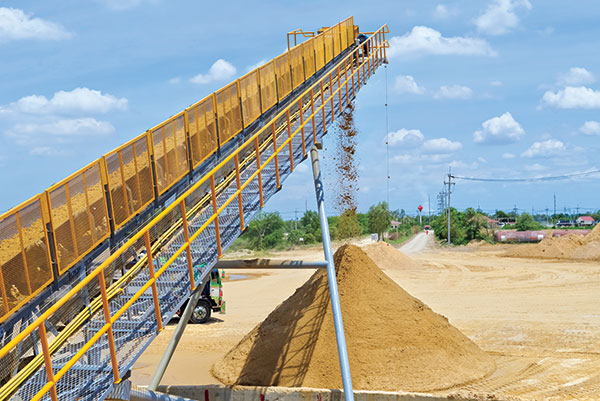Mergers and acquisitions back in a big way
You shared previously in the magazine how there’s a backlog of sorts causing weeks- and month-long delays in completing transactions. Is this dynamic still in effect? What slowdown or impact might this have in 2022 and beyond?
REDDIN: To close a transaction in this space, the buyer has to, in their due diligence, employ third parties. That’s lawyers, accountants, conducting environmental assessments on all the properties, survey work, title work and potentially a quality of earnings study required. Those vendors are backed up.
Part of that is because of the wave of activity we’ve had trying to get deals closed by the year’s end. That’s going to bleed into next year, for sure. But it would likely, at some point, start easing up. It’s not hampering deals from getting done. It’s just the speed at which they can get done.
MINEO: It used to be that service offerings [or] people would come to you and pitch what they can do to help make the deal move smoother with the acuity and quality of earnings study. Now, it’s to the point where you’re reaching out to them and saying: ‘Hey, can you come look at this?’ And they’re saying: ‘We absolutely can and we can help move this way more smoothly, but it’s going to take us four weeks to even get our hands on it.’
REDDIN: The way this is actually manifesting itself right now: If a seller were to come to market in the last 30 to 60 days and say: ‘I want this deal done by year’s end,’ it’s gotten challenging because you have to get all of these other service providers lined up. So some of the deals are just going to bleed into early next year.

Photo: Marwin1983/iStock / Getty Images Plus/Getty Images
We saw a number of ‘thunderclap’ deals in 2021, including Vulcan Materials-U.S. Concrete and Martin Marietta’s acquisition of Lehigh Hanson’s Western assets. There’s probably a limit on how many of these types of deals can go down in any one year, but can you see another sizable deal or two emerging before the end of 2021 or into 2022?
REDDIN: We have a consolidating industry. It’s relatively slow in consolidating. These ‘thunderclap’ deals are really kind of more episodic [versus] expected or predictable when they happen. We got three of them in a relatively short period of time.
I’d be looking for companies that aren’t able to participate in the market right now for whatever reasons as potential candidates. The analysis goes on all the time between the major players, looking at these billion-dollar kind of ‘thunderclap’ deals. In good markets, companies are assessing core assets. They’re reviewing their portfolios in the last five, six years. Many of the majors have gone through a review of their portfolios and decided what’s non-core or where they think they can better deploy capital. I think that probably had something to do with the motivation on the Lehigh Hanson deal.
I think the analysis is going to continue. There’ll be chatter about some deals, and we’ll see our one or two every 12 [to] 18 months type of diet.
MINEO: If you look at the USGS (U.S. Geological Survey) consumption of construction materials [and] aggregates, the growth is consistent, slow and steady. For these larger companies who need to present higher growth, acquisitions are always a key part of that.
As George said, it causes a constant survey of the field and a consideration of how they can make these deals work. So when the opportunity arises, they’ll jump at it.









